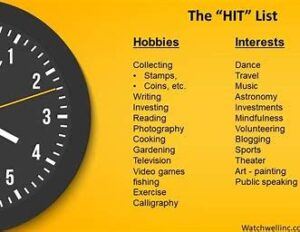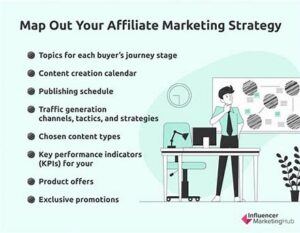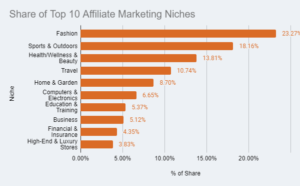Affiliate marketing is a popular online marketing method, particularly for beginners. At its core, this type of marketing involves promoting other people’s products and earning a commission for any sales made through your referral. It’s like being a middleman. I guide customers to products they might not find, create interest, and in return earn a bit from every sale.

I love the flexibility here. With affiliate marketing, costs are generally low. I don’t have to own products or deal with shipping. Instead, I focus on creating engaging content and finding my audience. This potentially turns into a great passive income flow where money rolls in even when I’m not directly working.
There are a few essential terms to get familiar with right away. An ‘affiliate’ is someone like me who promotes products. The ‘merchant’ is the company that owns the product, and the ‘commission’ is the share I earn from each sale. Often, the critical action I aim for is the ‘conversion’, which is when a customer makes a purchase after clicking through my links.
Tools and platforms are a big help as I navigate affiliate marketing. Websites like Amazon Associates and ShareASale provide networks filled with products to promote. I also use tracking tools to see how well my strategies work and adjust them as necessary. Without these handy resources, managing affiliate marketing efforts would be much harder.
Setting Up for Success in Affiliate Marketing
Picking the right niche sets the foundation for my affiliate marketing success. It’s crucial to focus on topics I’m passionate about or have some expertise in, as this ensures I stay motivated and authentic. A well-chosen niche also helps in targeting a specific audience, making my marketing efforts more effective.
Securing a spot in the best affiliate programs takes strategy. I don’t just apply everywhere. Rather, I research programs that align with my niche and offer good commission rates. Quality over quantity is key here. Once I’ve found good matches, I present a solid application, showing my potential value as a partner.

Building a presence online is my next step. I either set up a blog or a website, keeping my niche in mind, of course. Regularly posting valuable content attracts visitors and keeps them coming back. It’s also important to consider using social media platforms that fit my niche strategy for wider reach.
Navigating legal and ethical considerations is necessary. Compliance with the FTC guidelines is non-negotiable; transparency about affiliate relationships maintains trust with my audience. Plus, being upfront about earning commissions actually enhances my credibility. It shows honesty and encourages informed buying decisions.
Effective Strategies to Boost Affiliate Marketing Income
Content marketing and SEO are pivotal in driving traffic towards affiliate links. Crafting compelling content increases visibility and engagement, turning visitors into potential customers. I focus on creating articles, videos, or social media posts that answer questions or provide solutions within my niche.
Social media platforms provide a rich opportunity for promoting affiliate products. By understanding where my target audience spends their time online, I can tailor my content to meet them there. Interacting with followers, sharing engaging posts, and using eye-catching visuals helps boost my affiliate promotions.

Email marketing acts as a personal touchpoint with potential customers. I build an email list, offering valuable content or insights, and then strategically include relevant affiliate links. This method preserves the relationship-building aspect while increasing conversion chances.
Track and analyze your performance regularly. Using analytics helps to identify what content is working and where improvements are needed. This informed approach allows tweaking strategies based on audience behaviors and preferences, optimizing results without unnecessary guessing.
Overcoming Challenges and Preparing for Long-term Success
One thing I’ve learned is that challenges are part of the journey in affiliate marketing. Some of these might include finding the right products, dealing with competition, or experiencing slow traffic growth. I tackle these head-on by keeping my eyes open for innovative strategies and learning from what doesn’t work.
Ongoing learning is a game-changer in staying relevant. The digital landscape is always evolving, which means reading industry blogs and forums, attending webinars, and connecting with other marketers is crucial for keeping my edge sharp. Adapting to new tools and changes can help pivot smoothly when necessary.
Real-life success stories offer both motivation and practical insights. Studying case studies of successful affiliate marketers shows me tactics that work and mistakes to avoid. This practical knowledge reinforces strategies and offers ideas to tailor to my own approach.
Access to the right resources matters. I invest time in finding books, online courses, and community groups dedicated to affiliate marketing. This becomes a constant well of information to draw from as I grow my skills and broaden my understanding.Building resilience and being proactive sets the stage for long-term  success. It’s about having patience, keeping up with trends, and effectively using the tools and knowledge at my disposal. By remaining flexible and forward-thinking, I embrace the unfolding opportunities affiliate marketing continuously presents.
success. It’s about having patience, keeping up with trends, and effectively using the tools and knowledge at my disposal. By remaining flexible and forward-thinking, I embrace the unfolding opportunities affiliate marketing continuously presents.
